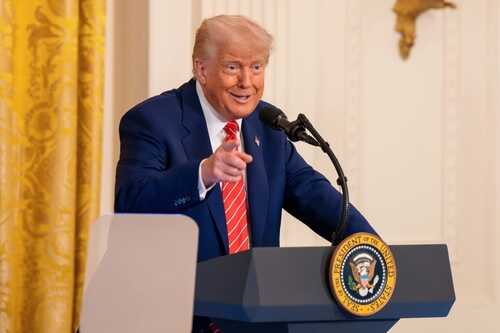(LibertySociety.com) – When the Senate rewrites its own rules not once, not twice, but three times in six months to clear the runway for a president’s nominees, the last guardrails of American legislative tradition may be slipping away, fast.
Story Snapshot
- Senate Republicans repeatedly changed filibuster rules in 2025 to accelerate Trump nominations
- Democrats, led by Schumer, used coordinated filibusters and procedural delays to stall confirmations
- Rule changes, once rare, are now strategic weapons threatening the Senate’s deliberative identity
- Experts warn of lasting damage to minority rights and the Senate’s institutional stability
Unprecedented Rule Changes Upend Senate Norms
Senate Republicans, wielding a narrow majority and emboldened by President Trump’s demands, have now altered the chamber’s filibuster rules three times in six months, an acceleration with no modern precedent. Each move targeted a new procedural hurdle, from EPA resolutions in May to budget restrictions in July, culminating in threats to eliminate the filibuster for executive and judicial nominees. The explicit goal: unblock Trump’s appointments by any means necessary, regardless of Senate tradition or minority party objections.
In early 2025, Democrats led by Chuck Schumer orchestrated a disciplined blockade, using every parliamentary tool to slow the march of Trump’s nominees. These tactics, while rooted in long-standing minority powers, triggered Republican claims of “unprecedented obstruction.” By late July, the majority flirted openly with the so-called nuclear option, changing Senate rules by a simple majority rather than the customary supermajority. This maneuver, once considered a last resort, has become a preferred weapon, eroding the Senate’s age-old reputation as the world’s greatest deliberative body.
Historical Context and Escalating Partisan Warfare
The filibuster, a relic of the Senate’s founding, once demanded a two-thirds supermajority to end debate, a mechanism for protecting minority interests and encouraging compromise. That threshold shifted to three-fifths in 1975, but the principle endured until recent decades. In 2013, Senate Democrats broke precedent by invoking the nuclear option for executive and lower-court nominees. Republicans extended the tactic to Supreme Court nominees in 2017, marking a new era of procedural brinkmanship. In 2025, with the chamber closely divided, both parties fully weaponized the rules, each escalation justified by the last.
President Trump’s direct pressure on Republican senators further accelerated the pace. The White House, impatient with vacancies in the judiciary and executive agencies, demanded action. Republican leaders, under scrutiny from conservative media and party activists, argued that Democratic obstruction left them no choice but to permanently alter the chamber’s rules. The Rules Committee, once a forum for bipartisan negotiation, was sidelined. Moderates in both parties warned of a slippery slope; their voices were drowned out by the clash of partisan imperatives.
Consequences: The Vanishing Minority Rights and Institutional Risk
Eliminating the filibuster for nominations and bypassing budget reconciliation restrictions have immediate impacts: Trump’s nominees move through swiftly, and regulatory priorities can shift overnight. But the deeper consequences are more insidious. The Senate’s minority, now stripped of its main leverage, becomes a spectator rather than a check on majority power. Bipartisan cooperation, already rare, becomes all but impossible. The chamber risks devolving into a majoritarian body, indistinguishable from the House of Representatives.
Trump blasts Schumer, Democrats as ‘country-hating thugs’ amid blockade on Senate nominees https://t.co/1BnzowQRAd
— Fox News Politics (@foxnewspolitics) August 6, 2025
Senator Alex Padilla of California warned, “There will be consequences long beyond Donald Trump’s presidency.” Political scientists and bipartisan think tanks echo his concerns, pointing to the growing instability in Senate operations and the potential for wild swings in federal policy every time party control changes. The Bipartisan Policy Center notes that reconciliation and rule changes, once emergency tools, are now routine, undermining fiscal and institutional stability. The net result: a Senate increasingly hostile to minority rights, its traditions hollowed out by relentless partisan escalation.
Copyright 2025, LibertySociety.com .
Click this link for the original source of this article.
Author: Editor
This content is courtesy of, and owned and copyrighted by, https://libertysociety.com and its author. This content is made available by use of the public RSS feed offered by the host site and is used for educational purposes only. If you are the author or represent the host site and would like this content removed now and in the future, please contact USSANews.com using the email address in the Contact page found in the website menu.








